Do you like to read and learn about different topics? Try new things out?
It turns out that exercising different parts of our brain leads to long-term health for not only our mental health, but our physical health.
Education and lifelong learning help us use our brains to their maximum potential by stirring up our curiosity and intellect, Dr. Lagoy adds. The more you use your brain, the more oxygen it requires, and your body increases blood flow to it to fulfill the higher demand. This is what keeps it healthy and active and benefits brain health. [1]
Learning new things creates energy and vitality and can give purpose to our days.
Okay then, so what do I want to learn for the month of November?
I have always been curious and my life path has involved many twists and turns. For awhile, every five years, I would either travel or further my education. I went back to school several times in my life and this changed the direction of my career. Travel opened up many perspectives in how I view the world and encouraged various interests.
So, this month is all about following my curiosity and trying some activities suggested for brain health. (NOTE: I will be in Japan, Hong Kong and Thailand, while doing this.)
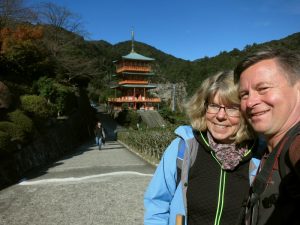
-
Take Care of Your Body
The key to this one is not only exercising, but building muscle. It turns out that as we age, we lose a lot of muscle, especially if you are in menopause or beyond. Muscle helps support weight loss (higher metabolism) and balance (strength of muscles working together).
Research has time and time again shown that people who engage in healthy behaviors such as exercise and proper nutrition are less susceptible to the cognitive declines associated with the aging process.[2]
Action Plan for November:
Cycling and hiking in Japan.
Luckily, I will be quite active in November as we are travelling to Japan and “A” has me signed up for a cycling and hiking trips! He is the organizer of this adventure.
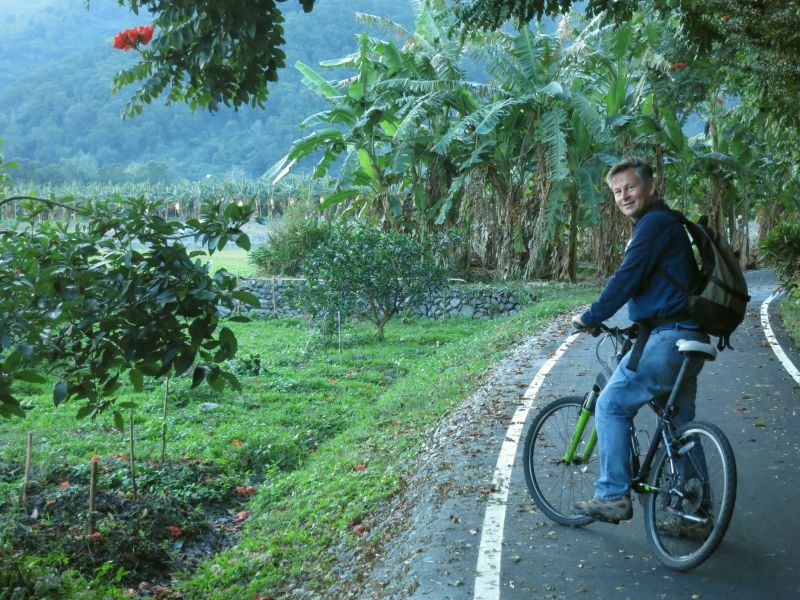
-
Draw a Map of Your Neighbourhood from Memory
Hmmm! This exercise is to get you to use your spatial reasoning and use parts of your brain that you normally do not use. It helps activate a variety of areas of your brain.
Action Plan:
Instead of letting ‘A’ navigate me across Japan, Hong Kong and Thailand, I will try leading more often, even though this is not my natural aptitude. It takes me a while to figure which way we are heading, e.g., north, south, east, or west, but I do recognize landmarks. This usually allows me to find my way back from somewhere.
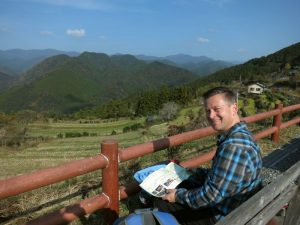
-
Learn Something New
Actively engage in learning a new skill or activity. You want to challenge your brain.
In one study, researchers assigned older adults to learn a variety of new skills ranging from digital photography to quilting. They then did memory tests and compared the experimental groups to control groups. Those in the control groups had engaged in activities that were fun but not mentally challenging such as watching movies and listening to the radio.[3]
The researchers found that only those participants who had learned a new skill experienced improvement on the memory tests. They also discovered that these memory improvements were still present when tested again a year later.[4]
Some things you might want to try include learning a new language, learning to play a musical instrument or learning a new hobby. Not only will you be stretching your mind, but you will also be continually learning something new as you keep expanding your skills and becoming more accomplished.
Action Plan:
Try learning a few words in Japanese, Cantonese (Hong Kong) and Thai and actually use the words. ‘A’ will be impressed if I do this. He is the one with the talent for languages.

-
Use your Non-dominant Hand to Strengthen Your Mind
Try switching hands while you are eating dinner or when you are trying to write something down. It will be difficult, but that is exactly the point. Because using your opposite hand can be so challenging, it can be a great way to increase brain activity.[5]
Action Plan:
Using chop sticks while I am away does create some brain activity, but if I try this with my left hand my brain will be working overtime. Let’s see how much food I actually get into my mouth!
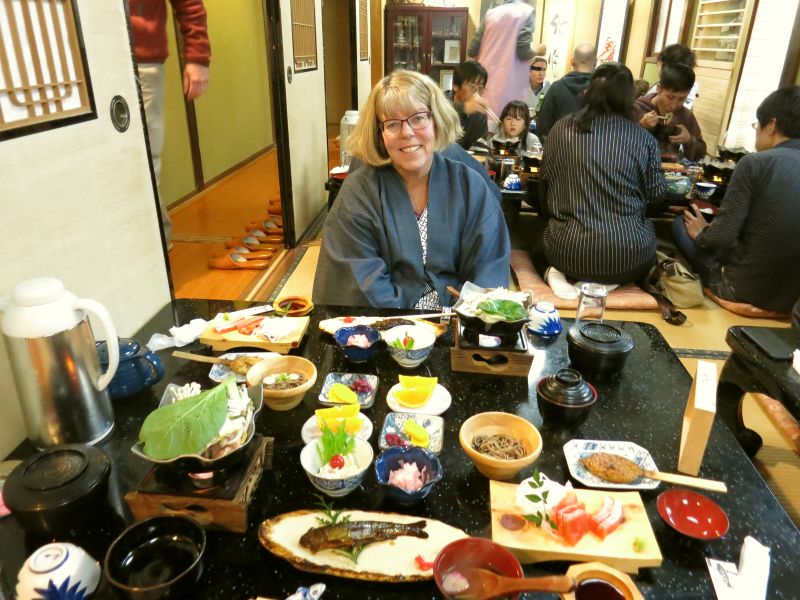
-
Socialize with Others
Studies from 2019 suggest that people who are socially active are also at a lower risk of developing dementia and Alzheimer’s disease.[6]
Action Plan:
Put this on hold until the new year, since I will be travelling. But if I see an opportunity I will certainly talk to people. That is where the curiosity comes in, as I am always asking people about themselves. I like hearing people’s stories.
-
Use Mindfulness and Meditation
Research suggests that mindfulness and meditation are associated with greater neuroplasticity, reduced brain aging, and improved cognitive abilities.
If you remember from last month’s blog, I had talked about being aware of your senses. (Name five things that you see; 4 that you hear; 3 that you feel, 2 that you smell; and one that you taste) This can you help you for being mindful.
Action Plan:
Since everything will be new and stimulating when I travel, my brain will be activated. But I will keep trying the sense’ exercise as I described above.

- Do Brain Exercises
There are claims, which are still open to debate, that brain exercises, can help you with long-term brain health. If you enjoy this, go ahead, it will certainly not hurt you.
Helpful brain exercises can include Sodoku, Scrabble, brainteasers, and mazes.
Action Plan:
Take a Sodoku book to do when I want to relax on the trip.
What is the BEST exercise you do for your brain?
Research suggests that aerobic exercise is best for cognitive ability, while resistance training is the most helpful for memory and executive function. The recommendation is to aim for 150 minutes of moderate-intensity physical activity and two days of muscle-strengthening exercise.[7]
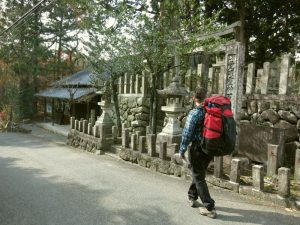
If I follow all of this information, I think I can conclude that if I follow my curiosity, keep learning about this world around me and try something new, all will be well.
Keep moving, smile, and enjoy life.
Take care,

P.S. The wrap up for this blog at the end of the month will be delayed until January 2024, along with December’s blog on goal setting.
[1] https://www.verywellmind.com/life-long-learning-has-positive-impact-on-brain-health-and-aging-5215596
[2] https://www.verywellmind.com/brain-exercises-to-strengthen-your-mind-2795039#citation-8
[3] Park DC, Lodi-Smith J, Drew L, et al. The impact of sustained engagement on cognitive function in older adults: the Synapse Project. Psychol Sci. 2014;25(1):103–112. doi:10.1177/0956797613499592
[4] https://www.verywellmind.com/brain-exercises-to-strengthen-your-mind-2795039
[5] Palmer MD. Keep Your Brain Alive: 83 Neurobic Exercises to Help Prevent Memory Loss and Increase Mental Fitness, by Lawrence Katz and Manning Rubin. Activities, Adaptation & Aging. 2016;40(1):80-80. doi:10.1080/01924788.2016.1144015.
[6] Sommerlad A, Sabia S, Singh-manoux A, Lewis G, Livingston G. Association of social contact with dementia and cognition: 28-year follow-up of the Whitehall II cohort study. PLoS Med. 2019;16(8):e1002862. doi:10.1371/journal.pmed.1002862
[7] https://www.cdc.gov/physicalactivity/basics/adults/index.htm
